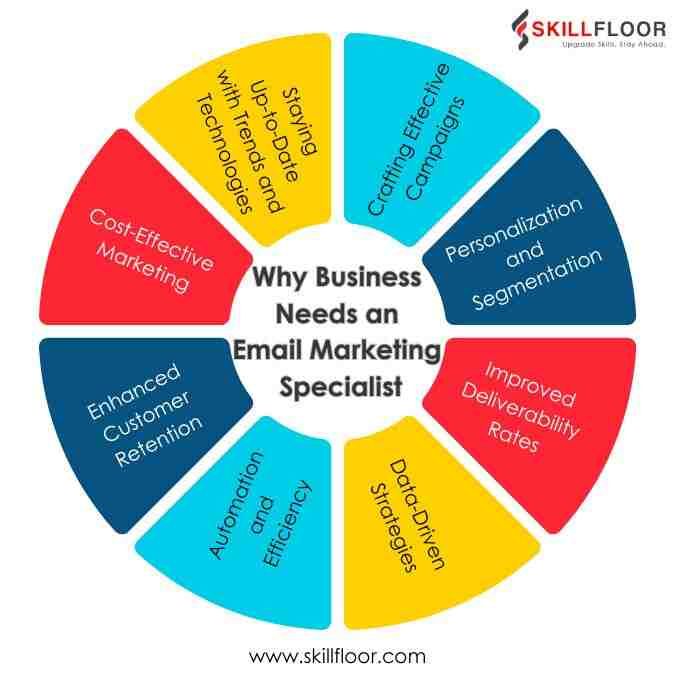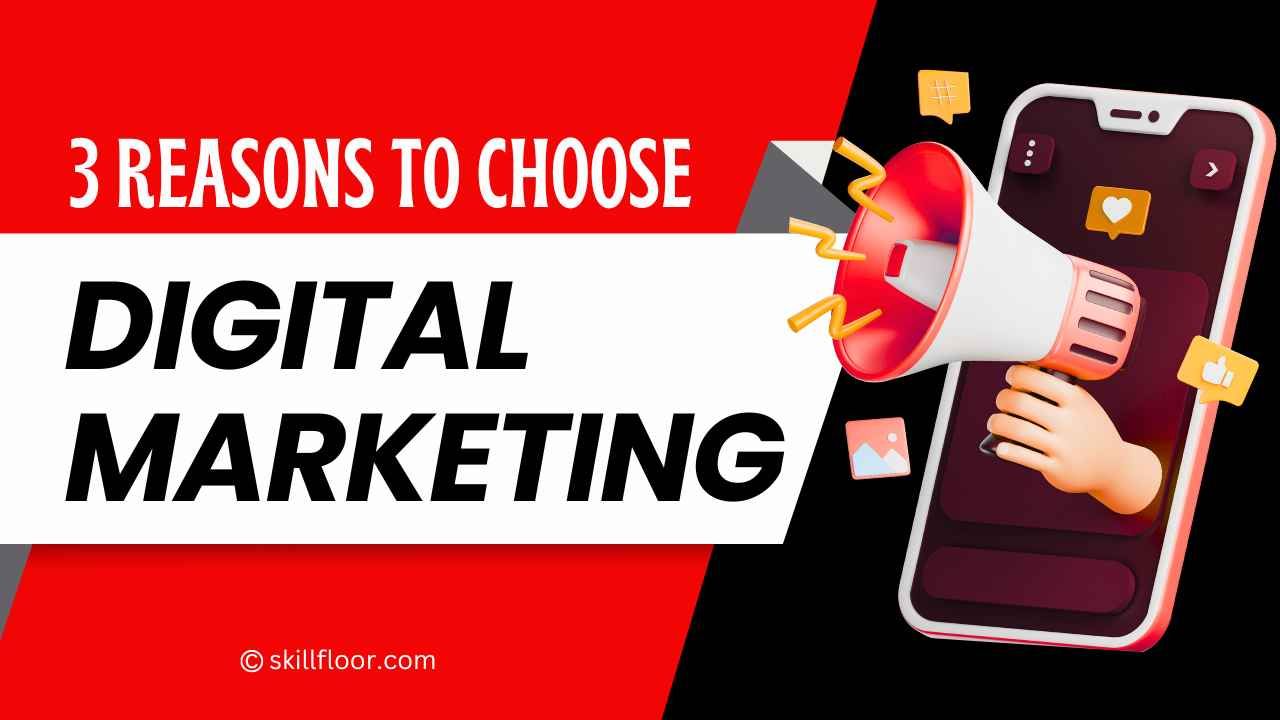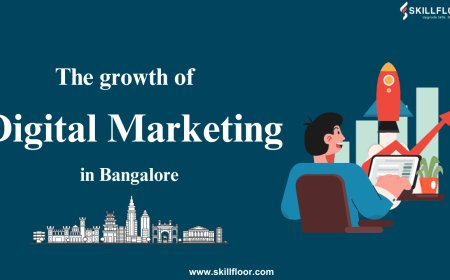Why Every Business Needs an Email Marketing Specialist?
Find out why having an Email Marketing Specialist is crucial for your business. Use targeted emails to grow and connect with customers effectively.

In the modern digital marketing environment, having an Email Marketing Specialist on your team is essential. These specialists create targeted email campaigns that help businesses connect with their customers. With their expertise, they ensure emails reach the right people, fostering a reliable communication channel. This personalized touch keeps customers engaged and is a key part of any successful digital marketing strategy.
An Email Marketing Specialist can boost the performance of your email campaigns. By using data to segment audiences, they send out emails that resonate more with recipients. This leads to better engagement and more conversions. Additionally, they stay updated on the latest trends and rules in digital marketing, making sure your campaigns are both effective and compliant.
Moreover, an Email Marketing Specialist can seamlessly blend email campaigns with other digital marketing efforts, such as social media and content marketing. This creates a unified strategy that strengthens your brand and enhances customer interaction. By focusing on effective email marketing, businesses can build lasting relationships with their customers. In the world of digital marketing, having an Email Marketing Specialist can make a significant difference.
Needs of an Email Marketing Specialist
Crafting Effective Campaigns
Email marketing specialists know how to create email campaigns that work. They understand how to write interesting subject lines, engaging content, and attractive designs. Their skills help make sure the emails get noticed by the target audience, leading to more people opening and clicking on them.
Personalization and Segmentation
Personalization is important in marketing today. Email marketing specialists are great at creating personalized experiences for subscribers by segmenting the email list based on things like demographics, purchase history, and behavior. This targeted approach makes the content more relevant, building stronger connections with the audience.
Improved Deliverability Rates
A big challenge in email marketing is making sure emails reach the inbox and not the spam folder. Specialists know best practices to improve deliverability rates, like proper email authentication, list hygiene, and following anti-spam rules. This helps maintain a good sender reputation and ensures emails go where they should.
Data-Driven Strategies
Email marketing specialists use data to guide their strategies. They look at key metrics like open rates, click-through rates, and conversion rates to see how well campaigns are doing. This data-driven approach helps them make adjustments and improve future campaigns, ensuring better results over time.
Automation and Efficiency
Automation is very helpful in email marketing. Specialists use tools to automate repetitive tasks like welcome emails, followup sequences, and cart abandonment emails. This saves time and ensures timely communication with subscribers, improving the overall customer experience.
Enhanced Customer Retention
Email marketing is great for keeping customers engaged and loyal. By regularly providing valuable content, updates, and exclusive offers, businesses can maintain a good relationship with their customers. An email marketing specialist knows how to keep this connection strong through strategic email communication.
Cost-Effective Marketing
Email marketing is very cost-effective compared to other marketing channels. It offers a good return on investment (ROI), making it a good option for businesses of all sizes. An email marketing specialist can help maximize this ROI by using best practices and continually optimizing campaigns.
Staying Up-to-Date with Trends and Technologies
The digital marketing world is always changing, with new trends and technologies popping up regularly. Email marketing specialists keep up with these changes, making sure the strategies they use are current and effective. Their ongoing learning helps businesses stay competitive and relevant.

The Role of an Email Marketing Specialist
-
Strategy Development: Creating an email marketing strategy involves aligning it with your business goals. This includes defining objectives, identifying target audiences, and selecting suitable email marketing tools. A well-planned strategy ensures consistency and effectiveness. It sets the stage for all campaign activities.
-
Campaign Execution: Designing and sending emails requires a mix of visual appeal and engaging content. This involves creating attractive templates, compelling copy, and clear calls to action. The execution phase ensures that emails are delivered on time and to the right audience. It also includes scheduling and automating email sends for impact.
-
Audience Segmentation: Segmenting the email list is important for personalized communication. It involves dividing the audience based on demographics, behaviors, or purchase history. Effective segmentation leads to more relevant and targeted emails. This increases engagement and improves campaign performance.
-
Analytics and Reporting: Analyzing campaign performance is essential for making data-driven decisions. This involves tracking key metrics like open rates, click-through rates, and conversions. Detailed reporting helps identify what works and what needs improvement. Regular analysis ensures continuous optimization and better results over time.
-
A/B Testing: A/B testing involves experimenting with different email elements to find effective combinations. This can include subject lines, email content, images, and calls to action. By testing variations, marketers can optimize for higher open and click-through rates. This process helps refine email strategies for better performance.
-
Compliance and Best Practices: Ensuring all email campaigns comply with legal regulations is critical to avoid penalties. This includes adhering to laws like GDPR and the CAN-SPAM Act. Following industry best practices ensures emails are respectful and welcomed by recipients. Compliance builds trust and maintains a positive sender reputation.
How Can Email Marketing Benefit Small Businesses?
Email marketing offers several benefits for small businesses. It's a budget-friendly option that can be tailored to fit within financial constraints. By investing in email marketing, small businesses can foster strong relationships with their customers, which are essential for long-term success. Additionally, email campaigns can drive traffic to their websites, increasing online visibility and interaction with their brand. Furthermore, email marketing serves as an effective tool for boosting sales, providing a good return on investment compared to other marketing methods. Through personalized content sent directly to subscribers' inboxes, small businesses can showcase their products or services, highlight special offers, and encourage conversions. By tracking important metrics like open rates and click-through rates, businesses can gain valuable insights to refine their strategies and improve results over time. In summary, email marketing enables small businesses to effectively reach and engage their target audience in a cost-efficient manner, contributing to their overall growth and success.
An email marketing specialist is an invaluable asset for any business. Their expertise in crafting targeted campaigns, maximizing ROI, keeping up with trends, enhancing deliverability rates, creating compelling content, and leveraging data ensures that your email marketing efforts are successful. By having a dedicated specialist, businesses can build and maintain strong relationships with their audience, drive revenue and growth, and achieve measurable results.






























































